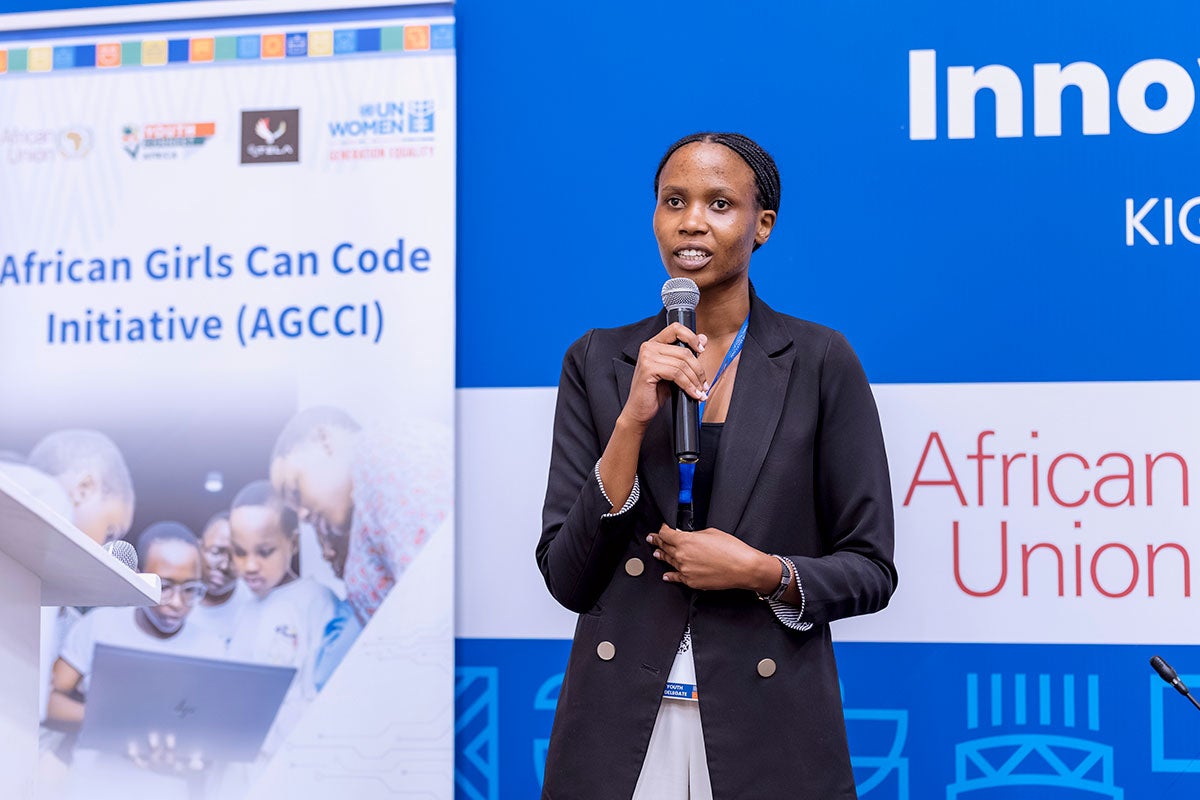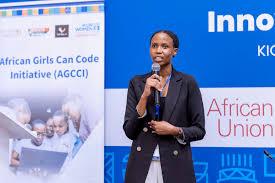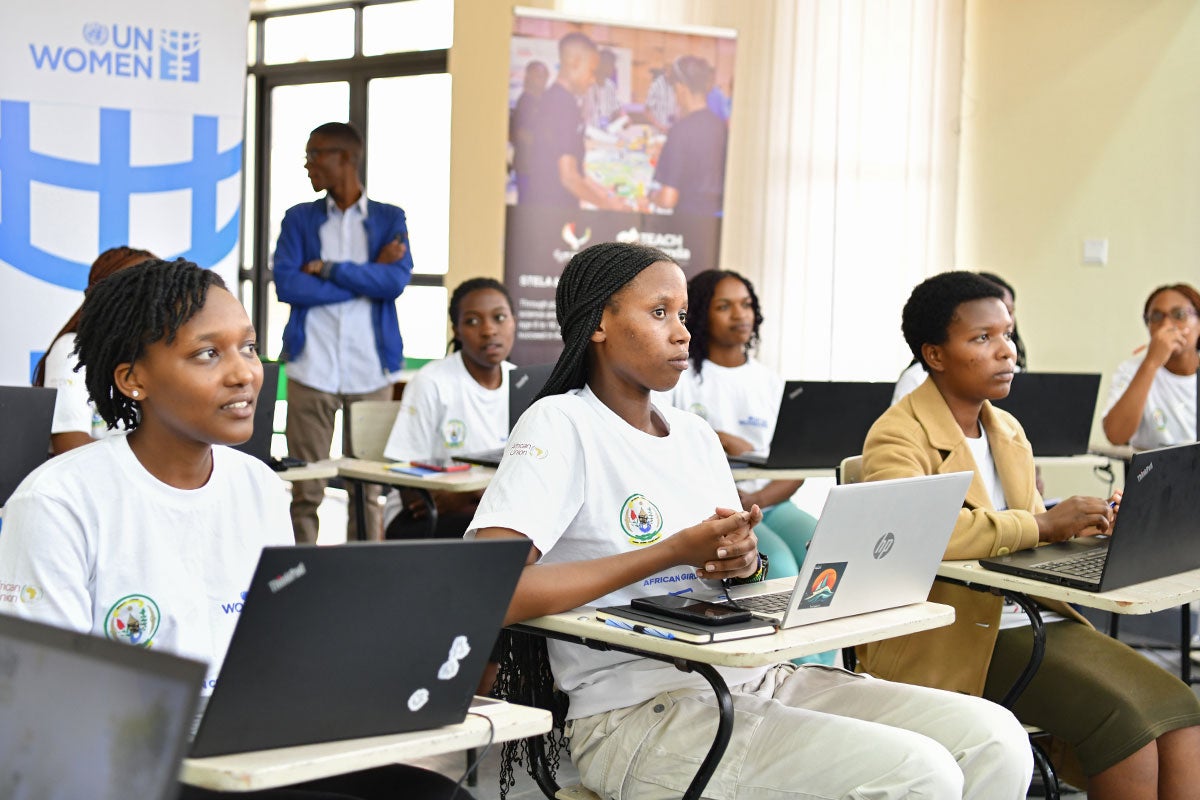

https://www.unwomen.org/en/news-stories/interview/2025/04/for-all-women-...
#ForAllWomenAndGirls is a rallying call for action on the 30th anniversary of the Beijing Declaration and Platform for Action. Pendo Vestine from Rwanda is an alumni from the UN Women’s regional programme, African Girls Can Code Initiative. Spearheaded by UN Women, the International Telecommunication Union, and the African Union, the programme has taught coding and other skills to more than 1,600 girls and young women in 11 countries across the region.
In this interview, Vestine talks about the importance of creating opportunities for girls and young women to access and lead in science and technology.
From learner to leader: Pendo Vestine’s mission to empower girls in tech
Pendo Vestine, a software engineering student at the African Leadership University (ALU) is deeply passionate about closing the gender gap in the tech industry and believes that the best way to do it is by creating opportunities for young girls and women to access education, mentorship, and leadership roles in Science, Technology Engineering and Mathematics (STEM).
Vestine grew up in a community in Gatsibo district, eastern part of Rwanda, where girls' education was not a priority. “I saw many talented girls being denied opportunities simply because they were girls,” she shared. The unfairness inspired her to challenge the gender stereotypes and norms that hold women and girls back from accessing and leading in technology.
“My journey took a meaningful turn when I joined the African Leadership University (ALU). I was immersed in a culture of leadership, innovation, and problem-solving,” said Vestine. “Meeting like-minded individuals who shared my passion inspired me to think bigger and take action to promote gender equality in tech and education. This is what drives me every day to create opportunities for those who are often overlooked.”
Vestine has created an application called HerTek, which offers online tech courses and mentorship for girls and young women, and partners with schools and universities to connect them with opportunities in the tech industry.
“Through this platform, I’ve been able to break down barriers, provide access to quality education, and inspire young girls to pursue careers in STEM. Seeing girls gain confidence, skills, and opportunities through HerTek has been my greatest achievement,” Vestine claimed.
The future of STEM is female, but we must break the gender barriers
Vestine says that some of the biggest challenges that hinder girls from pursuing STEM careers include gender bias, lack of female role models in tech, and financial constraints that girls face in accessing tech education and skills.
“Families often prioritize boys' education, leaving girls with fewer chances to pursue their dreams,” she explained.
“But I didn’t let these obstacles stop me,” she said. “I found incredible support through mentorship programmes, coding bootcamps, and organizations dedicated to empowering women in tech. Initiatives like the African Girls Can Code Initiative and SieMentEmpowHer were game-changers for me, as they helped me build my skills, gain confidence, and helped me believe in my own potential.”
“This journey taught me the power of community and the importance of creating opportunities for others facing similar challenges,” she added.
The Beijing Declaration and Platform for Action and the unfinished business of gender equality in STEM
Vestine first learned about the Beijing Platform for Action when she got involved with women’s empowerment programmes. “The Beijing Declaration remains relevant, because gender inequality still exists in many sectors, especially in STEM, where women and girls still face discrimination, lack of access to education, and barriers to leadership,” she said.
“It serves as a reminder and call to action for governments, organizations, and individuals to continue working towards gender equality.”
There has been a lot of progress in girls and women’s access to STEM since the adoption of the Beijing Platform for Action in 1995. However, in rural areas, limited resources and persistent gender biases have made progress too slow. “To move forward, we must focus on these overlooked communities, break down stereotypes, and ensure equal access for all,” urged Vestine.
For all women and girls… equal opportunities and freedom to pursue their dreams
Despite the barriers, Pendo Vestine feels hopeful when she sees more young girls accessing and leading technology. “When a girl is given the right opportunities, she can transform her future and uplift her community,” she said.
“My dream is for a world where every girl has access to quality education, equal opportunities, and the freedom to pursue her dreams without limitations. A future where women lead in technology, innovation, and decision-making.”










